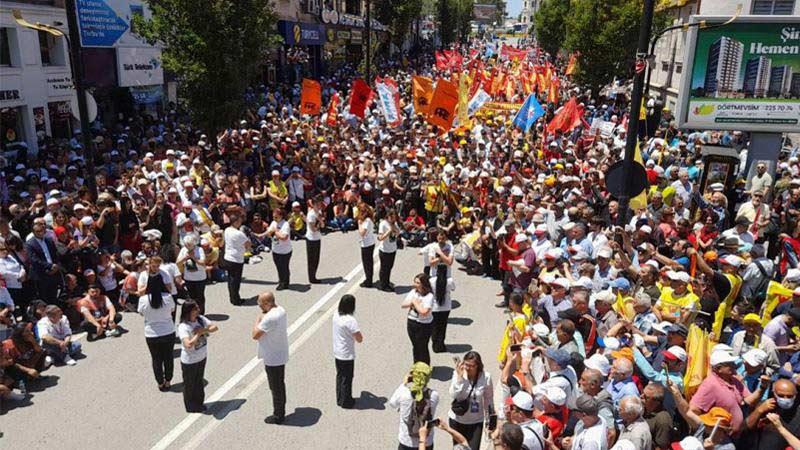The Centre for Social Justice Research (CSJR) at the University of Westminster recently welcomed international scholars and students to the Second Biennial International Conference of Alevism Studies.

Taking place between 2-4 July at The Pavillion on Cavendish Campus, this is the second conference hosted by the University to bring together new and established scholars from different disciplines and perspectives for a lively and productive discussion of the issues and challenges related to Alevi communities and Alevism. Alevis are the second largest ethno-religious group in Turkey, a persecuted community and not officially recognised as a distinct religious group. Alevis make up 15 per cent of Turkey’s population and there are approximately 1.5 million of them living in the diaspora. In collaboration with Alevi communities, the conference raises the profile of Alevism studies.
A former Member of the Turkish Parliament, activist and journalist highlighted the uniqueness of this conference, saying, “I have been talking about Alevi issues for fifteen years, and this is the first time I have been invited to a university to speak about them.”
The conference began with welcome remarks by Dr Ümit Çetin, who paid tribute to the victims of the Sivas Massacre on 2nd July 1993 and drew attention to the ongoing violence against Syrian Alevis (Alawites). He was followed by Professor Peter Bonfield, Vice-Chancellor and President of Westminster, who emphasised the importance of knowledge exchange between the University and the wider community and the growing prominence of Alevism Studies as an academic field. He praised Dr Çetin and Dr Celia Jenkins, who have led in promoting Alevism lessons in British religious education classes. Professor Dibyesh Anand, Deputy Vice-Chancellor of Global Engagement and Employability and Co-Chair of the University’s Equality, Diversity and Inclusion (EDI) Committee, also welcomed delegates, highlighting the University’s commitment to social justice, its support for marginalised communities and the importance of embedding such research within the principles of EDI. The conference was hosted with support from across the University, specifically the CSJR, Higher Education Innovation Funding (HEIF), the School of Social Sciences and the Hub on Migration, Exile, Languages and Spaces.

About the conference, Dr Ümit Çetin said: “Our conference is a cutting-edge forum for Alevi academics and students and consolidates the Centre’s and University’s position as the institutional base for Alevism studies globally. Most of the time, when Alevi scholars attend conferences or present their work, they speak to an audience who may never have heard of Alevis and Alevism, whereas our participants are already well-informed and generate meaningful dialogue on the topics presented. It is especially useful for postgraduate students who may be writing their dissertations on Alevi issues without having a supervisor who knows about Alevism. We thank Westminster for their support in hosting this conference, which is so appreciated by participants and demonstrates its commitment to social justice. Dr Jenkins and I are already looking forward to the third biennial conference.”
One academic from Turkey explained that: “The conference provided an opportunity for academics working in Alevi Studies to freely express themselves and present their work, despite the difficulties they face due to Turkey's political and institutional academic conditions. The high level of international participation made this platform even more effective and productive!”
Another academic from Turkey, who was exiled as one of the signatories of the Academics for Peace petition, said: “After a long break, I gave a presentation again at a university. At the start of a new life, immigration, which I began after half my lifetime, this was one of the most meaningful steps I’ve taken. Thanks to the University of Westminster, it feels good to keep speaking about inequalities.”
This conference directly contributes to the United Nations Sustainable Development Goals (SDGs) 10: Reduced Inequalities and 16: Peace, Justice and Strong Institutions. Since 2019, the University of Westminster has used the SDGs holistically to frame strategic decisions to help students and colleagues fulfil their potential and contribute to a more sustainable, equitable and healthier society.
Learn more about the Centre for Social Justice Research at the University of Westminster.


